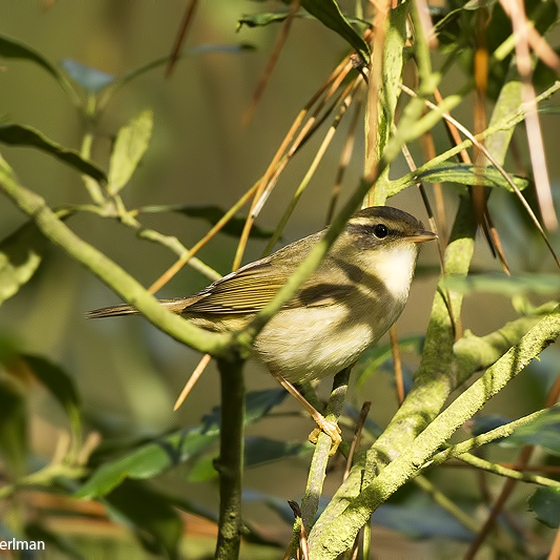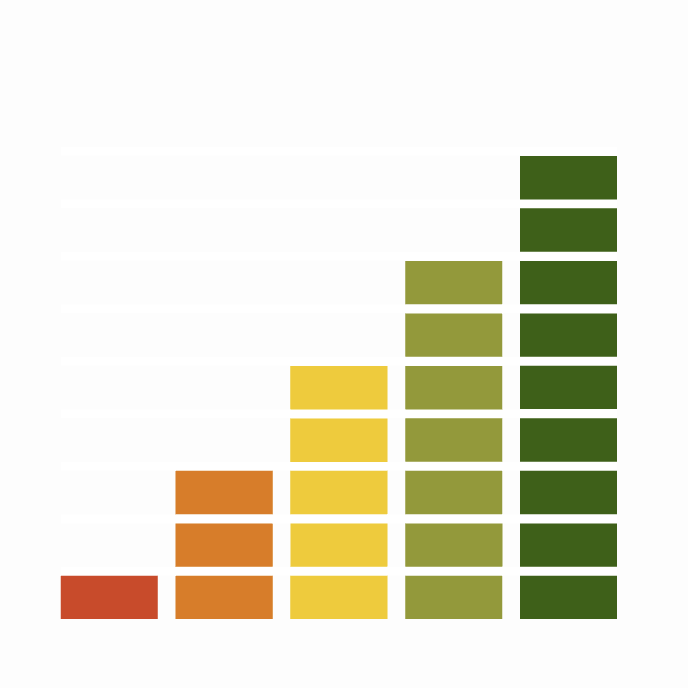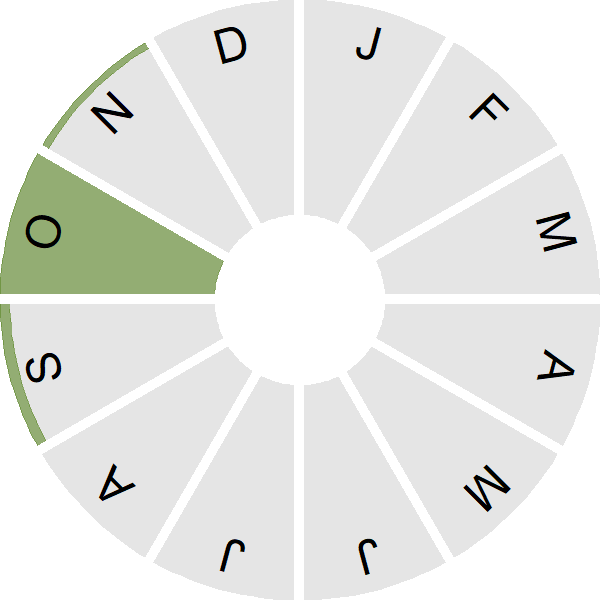Radde's Warbler

Introduction
A scarce visitor from central and eastern Siberia, most records of this dark, skulking warbler fall in October. The number of records has increased markedly since the 1950s, as equipment and identification skills have improved.

Key Stats
Identification
Songs and Calls
Call:
Status and Trends
Conservation Status
Population Size
Population Change
Population trends of this scarce species are not routinely monitored.
Distribution
This species is a rare vagrant and was recorded during Bird Atlas 2007–11 as shown on the map.
Occupied 10-km squares in UK
2007/08–10/11
or view it on Bird Atlas Mapstore.
Distribution Change
This vagrant is too rarely reported to map distribution change.
Seasonality
Radde's Warbler is a rare autumn vagrant, usually encountered in October.
Weekly pattern of occurrence
The graph shows when the species is present in the UK, with taller bars indicating a higher likelihood of encountering the species in appropriate regions and habitats.

Movement
Britain & Ireland movement
Foreign locations of birds ringed or recovered in Britain & Ireland
Dots show the foreign destinations of birds ringed in Britain & Ireland, and the origins of birds ringed overseas that were subsequently recaptured, resighted or found dead in Britain & Ireland. Dot colours indicate the time of year that the species was present at the location.
- Winter (Nov-Feb)
- Spring (Mar-Apr)
- Summer (May-Jul)
- Autumn (Aug-Oct)

Biology
Survival and Longevity
Survival is shown as the proportion of birds surviving from one year to the next and is derived from bird ringing data. It can also be used to estimate how long birds typically live.
View number ringed each year in the Online Ringing Report.
Classification, names and codes
Classification and Codes
- Order: Passeriformes
- Family: Phylloscopidae
- Scientific name: Phylloscopus schwarzi
- Authority: Radde, 1863
- BTO 5-letter code: RADWA
- Euring code number: 13010
Alternate species names
- Catalan: mosquiter de Schwarz
- Czech: budnícek tlustozobý
- Danish: Schwarz´ Løvsanger
- Dutch: Raddes Boszanger
- Estonian: siberi lehelind
- Finnish: siperianuunilintu
- French: Pouillot de Schwarz
- German: Bartlaubsänger
- Hungarian: vastagcsoru füzike
- Icelandic: Fránsöngvari
- Irish: Ceolaire Radde
- Italian: Luì di Radde
- Latvian: Švarca kaukitis
- Lithuanian: storasnape pecialinda
- Norwegian: Viersanger
- Polish: swistunka grubodzioba
- Portuguese: felosa-de-radde
- Slovak: kolibiarik dlhochvostý
- Slovenian: debelokljuna listnica
- Spanish: Mosquitero de Schwarz
- Swedish: videsångare
- Welsh: Telor Radde
More Evidence
More evidence from Conservation Evidence.com
Partners
Citing BirdFacts
If you wish to cite particular content in this page (e.g. a specific value) it is best to use the original sources as linked in the page. For a more general citation of the whole page please use: BTO (20XX) BirdFacts Species: profiles of birds occurring in the United Kingdom. BTO, Thetford (www.bto.org/birdfacts, accessed on xx/xx/xxxx).

